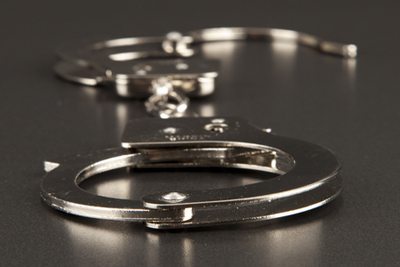State Bills Aim to End Practice of Shackling Pregnant Inmates
So far this year, lawmakers in at least five states have introduced legislation to prohibit the practice of shackling pregnant inmates.

Lawmakers in several states have recently introduced bills banning the practice of shackling pregnant women who are incarcerated or detained during labor and delivery.
As of 2010, there were more than 200,000 women incarcerated in federal, state, and local facilities. In state prisons, one in 25 female inmates are pregnant when admitted, and one in 33 are pregnant when admitted to federal prisons. There are currently 18 states that have laws either prohibiting or restricting the shackling or restraining of pregnant inmates.
So far this year, lawmakers in at least five states have introduced legislation to prohibit the practice of shackling pregnant inmates.
Del. Mary Washington (D-Baltimore City) introduced HB 27 into the Maryland House of Representatives, and the House Judiciary Committee is scheduled to hold a hearing on the bill Tuesday.
Washington told Rewire that she first became aware of the issue while meeting with activists from Power Inside, an organization in Baltimore that serves women affected by gender-based violence and oppression. While speaking with formerly incarcerated women, Washington heard stories of pregnant women who had been subjected to the practice. “One of challenges that these women face is that they are permanently scarred, emotionally and in some ways physically, from being restrained during pregnancy and during birth,” she said.
Washington drafted the legislation after reviewing laws banning the practice in other states, consulting with students at the University of Maryland Law Clinic, and working with Power Inside and the ACLU. Last year, Washington introduced a bill based on this work that passed the house, but it became “extremely watered down.” It also faced resistance from law enforcement and the state corrections agency.
Washington said that support from the general public has been limited, which she believes is in large part due to the marginalized population that the law addresses. “When we imagine people as part of our correctional institutions, they lose their humanity,” she said.
Washington says this year’s bill is stronger and has support from hospitals and health-care practitioners, helping to frame the issue as one of public health.
Similar pieces of legislation have also been introduced in New Jersey, New York, Massachusetts, and Iowa. Sen. Janet Petersen (D-Des Moines) introduced legislation this year; she too met with resistance after sponsoring a similar bill last year. “Sometimes issues that you think should be a slam dunk are the hardest to get passed,” said Petersen.
Meanwhile, at the federal level, push-back over incidents in which undocumented pregnant women were restrained during labor and delivery recently led to the inclusion of a provision in the omnibus spending bill signed by President Obama to ban the practice of shackling pregnant women detained by Immigration and Customs Enforcement.
